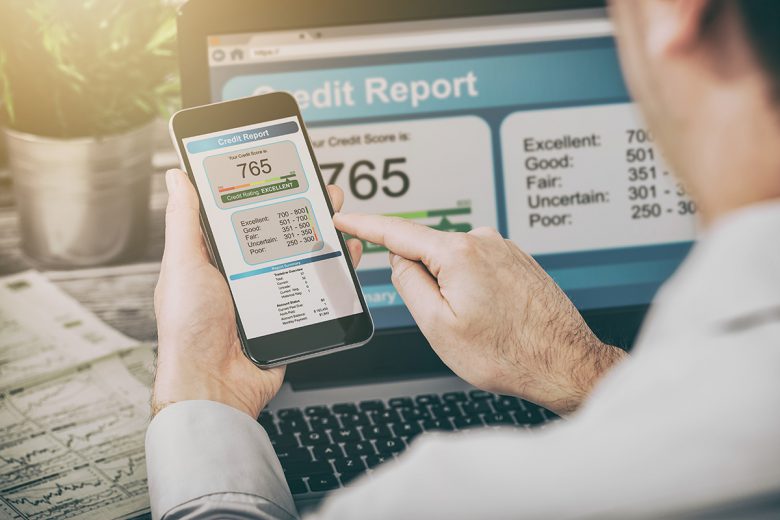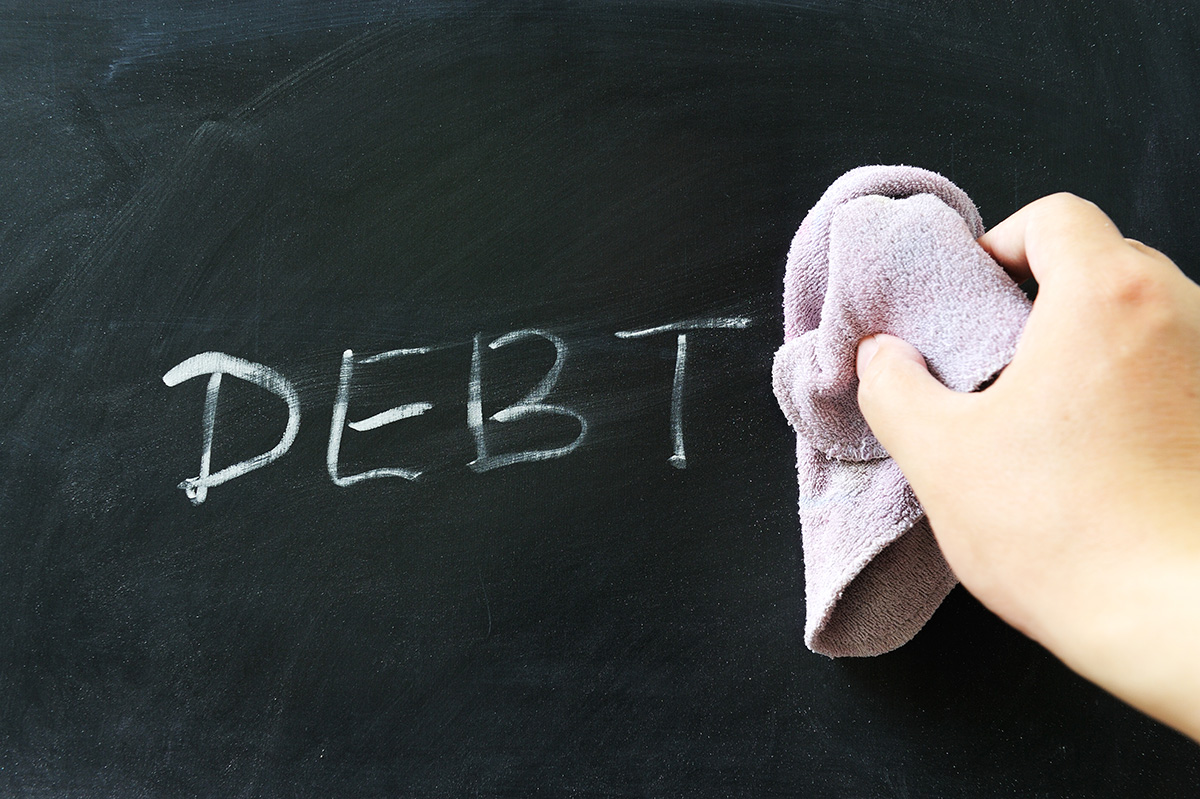If you use a credit card, pay bills or are thinking of applying for a loan, it’s important to know what your credit rating is and also the kind of factors that can make it go up or down.
What is a credit rating?
Your credit rating is a score based on an analysis of your credit file by a credit reporting agency. It is a number between zero and 1,200 and where you sit on this scale (the average is around 750) determines your creditworthiness.
Your credit rating is used by lenders to decide whether they will lend you money, how much and at what interest rate; and the higher your score, the more favourably they will view your application.
The high end of the scale is Excellent(meaning you are a very good risk) and the low end is Below Average (meaning you are quite likely to damage your credit score within the next 12 months).
Where you are on the credit scale is determined by a number of different factors and in Australia, as in many other countries, these can be both positive and negative factors.
How credit scores work in Australia
The new Australian credit reporting system is similar to that found in many OECD countries. Known as Comprehensive Credit Reporting (CCR), it replaced the old system in 2014, which relied entirely on reporting of negative information.
Switching to CCR will mean that positive information such as good credit behaviours is now recorded along with the negatives, which will have benefits for both borrowers and lenders.
Consumers benefit from CCR in several ways. For one thing, recent positive behaviour is recorded, which can help to balance out old indiscretions still on file.
Those with a short credit history also have more information in their file, improving their chances of getting credit. And those with a good credit rating can use the additional positive information in their file to leverage a better interest rate when applying for a loan.
Lenders will also benefit from Comprehensive Credit Reporting. The inclusion of more consumer information will give them a more accurate picture of their clients and allow them to tailor their products more accurately. More information will also allow lenders to more easily identify credit stress, resulting in more responsible lending and fewer bad debts.
What does negative credit information include?
Negative credit information in your credit report typically includes your personal details, your credit applications over the last 5 years, current credit accounts (i.e. utilities), payment defaults, bankruptcies, insolvencies, court judgements and public record information.
What does positive credit information include?
Positive credit information includes details such as types of credit account, opening and closing dates, credit provider details, credit limit and usage, account balances and repayment history.
While CCR was introduced in 2014, the big banks have been dragging their feet on implementing the changes, with the result that the government has now mandated positive credit reporting, requiring at least 50% positive reporting by mid 2018 and 100% by the following year.
What affects your credit rating in Australia?
So now let’s look at some of the biggest problems that can influence your credit rating, along with ways you can rectify them.
1. Applying for credit several times
This usually involves submitting loan applications to several banks, hoping that one will be approved. Each time you apply for credit, it is recorded in your credit report and if you’ve made a lot of enquiries in a short amount of time, some credit providers may see this negatively and reject your application. Solution: Before applying, research different lenders and choose the most appropriate one to submit your credit application to.
2. Paying your bills, loans or credit cards late
An overdue debt of at least $150 will be listed on your credit report when it’s 60 days or more overdue. Overdue accounts are kept on your file for up to 5 years. Solution: Pay on time, every time, or if that’s not possible, at least pay off an overdue debt within 60 days of getting the first notice of payment so that it doesn’t appear on your credit report.
3. Not paying your bills or meeting loan repayments
If you have a dispute with a utility supplier and refuse to pay the bill or you don’t meet your loan repayments, you could risk having these listed as overdue debts or defaults on your credit report, which will bring down your credit score. Solution: You’d be better off paying the bill and then disputing the amount after that. And if you’re having trouble meeting repayments, speak with your credit provider and see if you can apply for a hardship variation and negotiate a repayment plan.
4. Not removing errors in your credit report
If you find an error in your credit report and choose to fix it later rather than sooner, your credit score will not improve and it’ll affect your future credit applications. Solution: Tell the privacy commissioner there’s an error on your file and if you’re applying for a loan, tell your lender a correction is pending. You’ll need to prove that the item isn’t correct, such as a letter declaring the account isn’t yours or that it has already been paid.
5. Not keeping track of your credit report and score
If you’ve changed jobs or moved house over the years, you could end up losing track of the details in your credit report, which could adversely affect your credit score. Solution: Check your report every 1-2 years so you’re up to date with your credit standing and can fix any errors immediately.
6. Putting too much on your credit card
If you max out your credit card or put too much on it, this will lower your credit score. Your credit score is calculated in part by your debt-to-credit ratio (your credit card balance in relation to your available credit line) and if you have a debt-to-credit ratio of more than 50%, it will start to affect your score. Solution: Limit spending on your credit card to 30% or less of your available credit to avoid harming your credit rating.
7. Getting rid of a credit card that you have paid off
Closing a credit card that you have been paying off regularly over the years removes what would otherwise be a favourable mark on your credit report. Solution: Pay the card off by all means, but don’t cancel it, as it will continue to provide evidence of positive credit behaviour on your credit report.
8. Being taken to court over an unpaid debt
If you default on a loan and a court rules you must repay the debt, this will put a black mark on your credit report and severely restrict your chances of borrowing again in the foreseeable future. Solution: Rather than allowing the case to go to court, you would be far better off seeking financial counselling and negotiating a compromise with the debtor.
9. Having a spouse or partner default on a debt
If you have bills or credit cards in both your names and your partner or spouse defaults on a debt, both your credit scores will be negatively affected. Solution: Make sure you both pay your debts on time or consider getting separate accounts if one of you is an unreliable payer.
How to improve your credit score
You can find out your current credit score online for free by visiting sites such as;
And if you find that it’s lower than you’d like it to be, here are some ways to improve your score and increase your chances of obtaining credit in the future:
- Use your credit card – keeping your credit card active will help build your credit score and show that you’re capable of managing debt (just make sure to pay it off each month).
- Use different types of credit – successfully managing different types of debt such as a mortgage, car loan, personal loan etc will also increase your credit score.
- Use someone else’s credit – have someone with a good payment history add you as a credit card holder to their credit account. This way, their payment history will be included on your credit report as well, giving you a better account.
- Consolidate your debts – if you are having trouble meeting repayments because you have multiple loans and credit cards, look at consolidating them all into one low-interest loan so that you can start rebuilding your credit score.
Get help from SRG Finance
If you’re considering taking out a personal loan, whether it’s to consolidate your debts or for any other reason, SRG Finance can provide you with a finance solution that major banks often can’t.
We specialise in assessing each loan application on its individual merits and we pride ourselves on taking real life situations into account in order to give our clients the help and assistance they need.
That means if your credit score isn’t as great as you’d like it to be, we may still be able to help you get the funds that you need. Our Cash Advances do not require a credit check and our Personal Loans and Secured Loans often take occasional defaults into consideration.
Apply now through our simple online application form or call us at SRG Finance on 1300 774 562.



